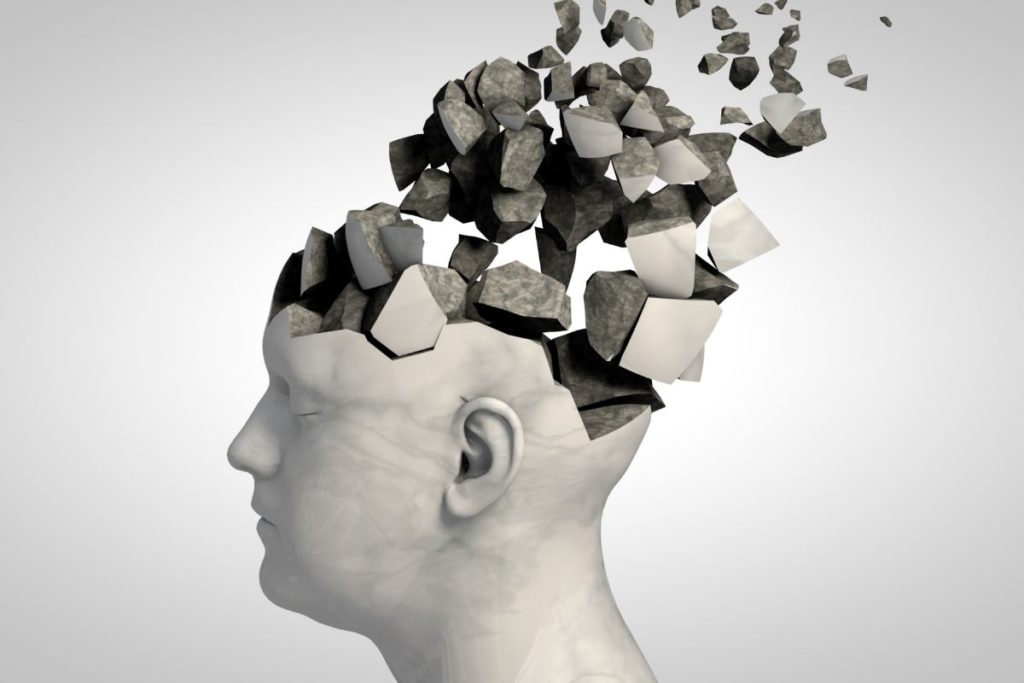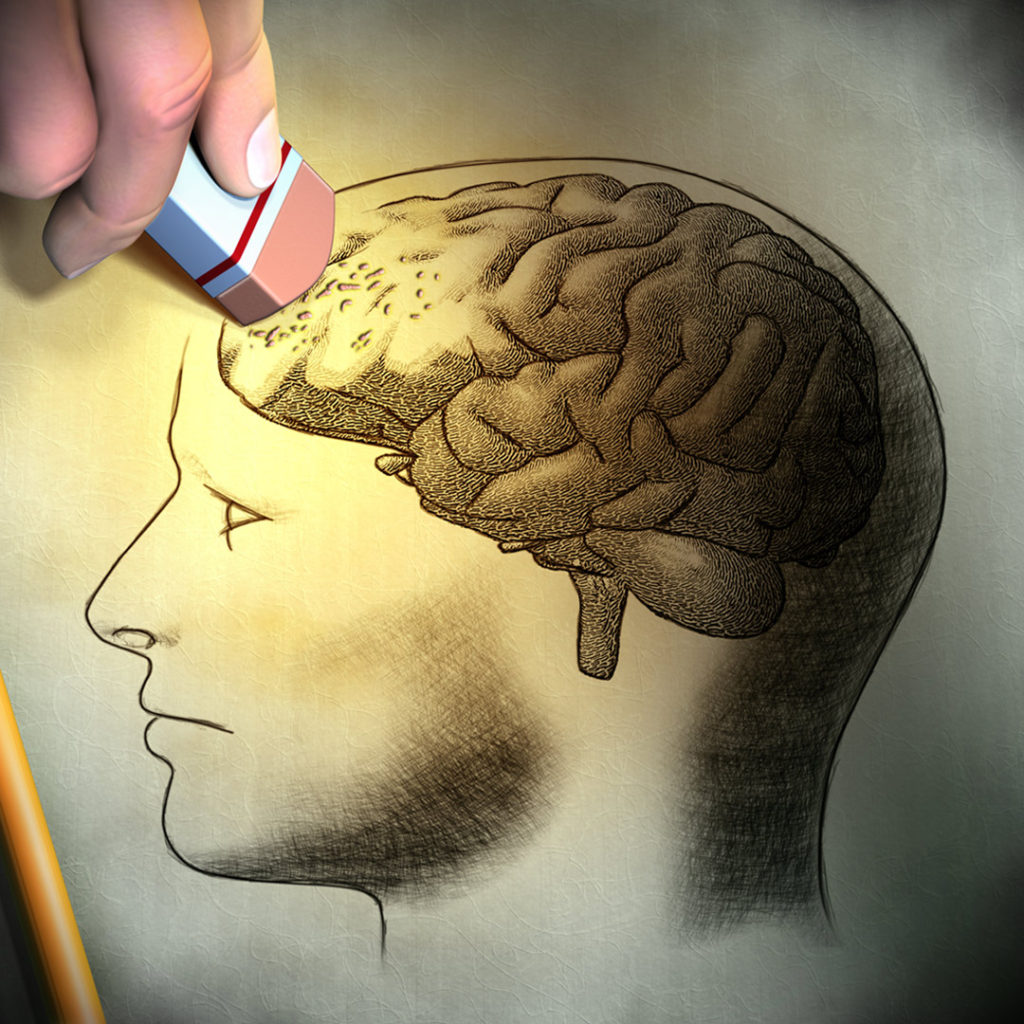
About 2 years ago IT finally happened to me. That dreaded ‘old people’ thing: You know what I’m talking about, you walk into a room and not remember why the hell you went in there. Or better still, you bump into someone you haven’t seen in awhile but you KNOW that you ‘know’ them really well but for some reason you just can’t seem to remember their name…
Dementia.
The Demon-Mental.
This imperfection – this blemish – on the beautifully reflective mind that we all know damn well we have is, unfortunately, just the way that it goes. Age related memory changes are just par for the course. Just like cars, the longer you ‘drive’ through life, the further down the road we go, the more likelihood we have of there being issues that arise. Minor malfunctions are just something that we have to look out for and – gratefully – can be dealt with pretty simply.
We have a heckuva lot going on in our minds these days, exponentially more than in any era of the past. So, it’s very common for our brains to literally be overflowing with information, details, and stupid things that serve no purpose whatsoever (but that cat video Was funny, wasn’t it?) and so we loose some stuff. On the bright side, unless an actual diagnosis of Alzheimer’s or microscopic vascular bleeding has been determined, most of it is pretty petty and not really worthy of the stress we may create in our own minds worrying about it.
The memory changes gradually over time as we age. Not necessarily in a decidedly negative way, it just changes. The plasticity, or it’s ability to change in how it assesses & structures information as well as what we do with it, is pretty remarkable. And think about it, you’ve been alive doing different things every single day for 50+ years, that’s a lot to remember. And if you’re lucky enough to be in your 60’s, 70’s, or 80’s you’ve got a heckuva lot more memories, locations, names, faces, and even singular events floating around up there!
Sometimes it’s a life stressor that can also cause little blips in our thoughts and memory. It could be a change in medication. It might be new feelings of anxiety or depression related to a change in the condition of a loved one or close friend. It could be just a new set of demands based on a change in living situation, a new model of car, or your daily schedule. These things are going to happen, and losing track of them is normal, yes, even for young people. It’s just that when it happens to younger people we call ourselves a name and move on without a single afterthought; when we’re older we start to attach every single thing that happens to our age. That doesn’t mean that we’re wrong about that assumption, but it probably does mean that an incorrect assessment in the severity of the issue is.

So, what do we do about it? Making positive lifestyle changes can support both heart health and brain health. Healthy lifestyle behaviors include exercise, diet, sleep, staying active mentally, maintaining social ties, and finding meaning in your life. Recognize that some degree of cognitive decline is to be expected. Tracking it over time can give you a sense of control, and help determine when to consult your doctor. Plus, it’s really challenging to predict an individual’s course of cognitive decline, we can only work with where we are today. Live with it like any health-related concern, and know that this is—as poet Mary Oliver describes it—“your one wild and precious life.” Even if it gets worse, today is a day to be lived.
Let’s add to this some positive lifestyle changes, like good sleep habits and better nutrition. These contribute directly not only to the health of the brain, but of the heart as well. Other lifestyle mannerisms can also be beneficial, such as staying mentally active, learning new skills, and even just maintaining and creating new social connections to the people around you. These will also help to add more structure to your regular routines, enrich your daily activities, and bring a greater sense of purpose and meaning in a life that all too often we feel we’re nearing the end of when those things start to fade away. We need to remember and keep reminding ourselves that Living Life is how we Stay Alive, and that staying active mentally is the Key.
Most of these memory issues can be countered by engaging in consistent routines on a regular basis. In fact, there’s a technical name for this: It’s called a Protocol. I prefer Standard Operating Proceedure (SOP), and when you’re “off” protocol and end up in a different place than you wanted in your plan, the ever-loving SNAFU (Eyahp, that’s Me: Situation Normal…..) I use protocols for everything. A good protocol to follow is “A place for everything and everything in it’s place”: One place for my keys. One place for the TV Remote (still working through that one…) separating clothes by need and accessibility (what?!? Pack away the summer stuff in the winter and do what with the winter stuff in the summer?…jeez, who knew…) and it’s this kind of routine-building that’ll replace your mind’s keeping track of umpteen random things and allow you to focus on what’s important at any given time.
For adults old and young alike, TaiJi (Tai Chi) is the answer to a lot of questions we didn’t originally think we’d need the answers to. TaiJi is a fantastic way to incorporate all of these things in your life. Becoming more active, learning new things, a physical exercise that places a great emphasis on balance and strengthening the muscles and bones associated with locomotion, being in a social situation, and being in a community of like-minded people aiming at maintaining and increasing their healthy lifestyles – all of that’s wrapped up in the practice of TaiJi!!!
A name, or what I walked into the room for, are not life-altering details. And even taking it a step further: passwords, account #’s, and other such ‘important’ but rarely-accessed details can always be written down somewhere (and Trust me, the offices that you hold bills with have all of your account #’s and amounts at the ready if you ever need them – in Triplicate). It’s those things that pop up once in a while, those rarely-utilized bits of information that upset us when we (don’t Have to keep track of them and so) forget about them. Hey, John or Joanne will forgive you for not remembering the name when they see how glad you are to see them and recount every other nonsensical detail of your happy times together. And whatever it was that you forgot to get when you went into the room? Just walk back into the room you were in and as soon as you goto change the channel or grab your drink you’ll realize Why you went into the bedroom or the kitchen…
